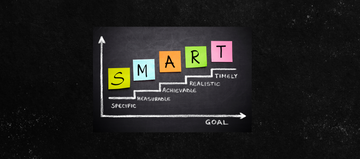As the new year begins many of us are probably working hard to fulfil our new year’s resolutions. But what about the people who have decided to throw in the towel on their resolutions already?
Setting new year’s resolutions is a great way to start off the year - motivation for change is high and we want to ensure that this year is bigger and better than the last. This is good in theory, but if you’re setting goals with no plan about how you’re going to achieve them, it could mean you’re setting yourself up to fail before you’ve even begun.
A survey was conducted by Finder.com.au in 2020 asking over 1,000 Australians about new year's resolutions. The survey revealed that 83% of respondents set a new year's resolution for 2021 and of those, over half wanted to improve fitness/lose weight and 38% wanted to eat better.
Befitfood.com.au co-founder and dietitian, Kate Save, explained that “setting new year's resolutions is exciting for people as they write down what they want to achieve, however, they often fail to plan, which is the same as planning to fail!’. She continued to say ''set realistic goals, set timelines and know how much you are willing to give up or sacrifice to make the changes that it will take to bring you the results you are hoping for!'.
So, what does setting realistic goals look like? Change doesn’t happen overnight, which is the most important thing to remember going into the new year with resolutions. Whether your goal is to lose weight, eat healthier, exercise more or be on your phone less, there is one way to help you achieve these goals to the best of your ability – setting SMART goals:
- Specific – Choose exactly what it is you want to accomplish (who, what, where and why).
- Measurable – How will you track your progress?
- Achievable – Choose a goal that is challenging but possible, how will you do it?
- Relevant – Is this goal relevant to your life right now?
- Time-based – When do you want to do it? Set 1 or more target dates.
So, when you’re setting a goal instead of: I want to lose weight and exercise more....
Try using the SMART principles: I want to lose 3-5kg by completing the Be Fit Food Metabolism Reset Program for 2 weeks, keep myself accountable with monthly dietitian consults and walk for 30 minutes most days. Plus set yourself a backup plan, just in case you fall off the rails you can quickly get back on track again. This might involve a quick 1-week healthy eating program such as the Be Rapid 7-day program with Be Fit Food to lose 1-2kg that might have crept back on.
By setting short-term, realistic goals, you’re more likely to see results and stay motivated, meaning your long-term goals seem more attainable. At the end of the day, we are all humans, and we make mistakes. If you eat an ice-cream or block of chocolate or skip your workout for a few days, it doesn’t mean your progress is ruined, you just need to get back on track as soon as possible and look at the experience as a speed bump instead of a roadblock.
Kate recommended that 'we should all use the compensation theory whereby we just own up to our mistakes and work out what we need to do to overcome the setback and move forward again'.
There is no time to start like the present.
- Finder December survey, 2020







